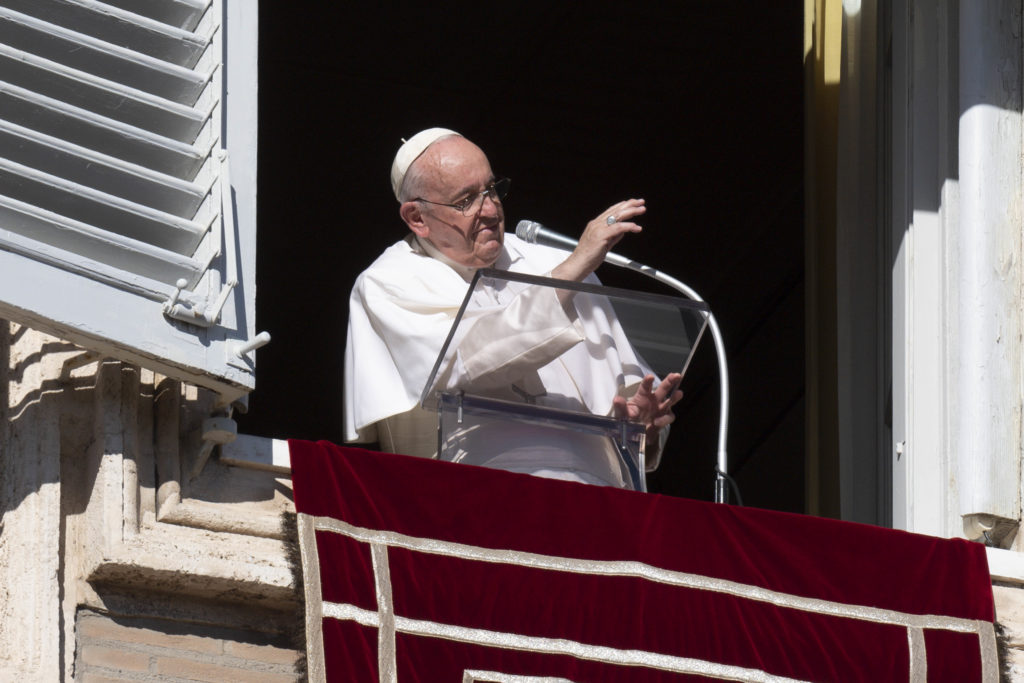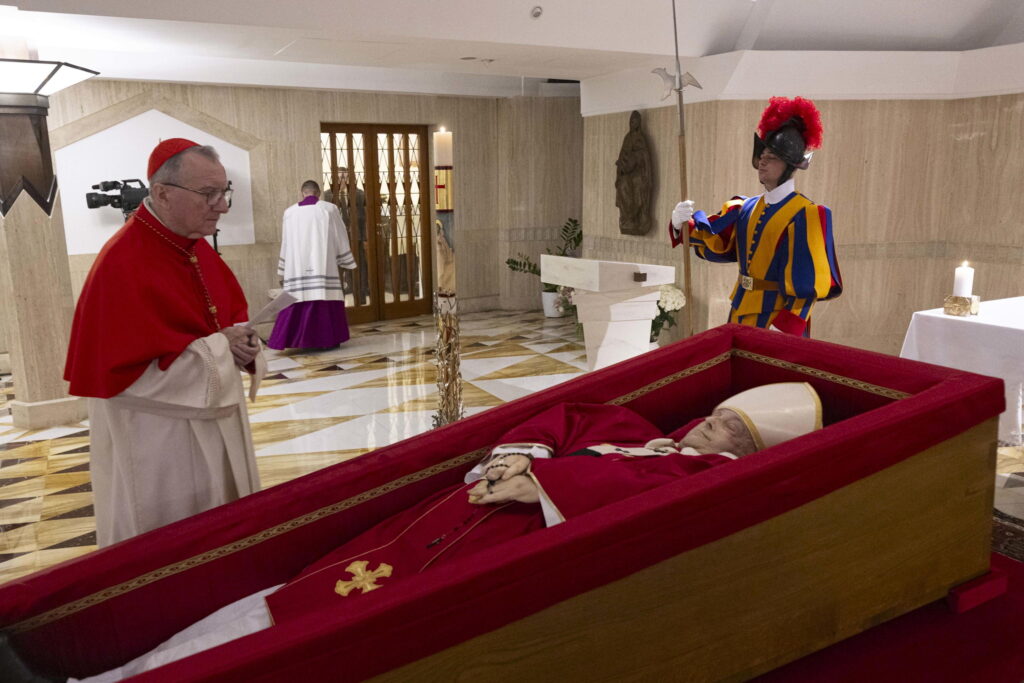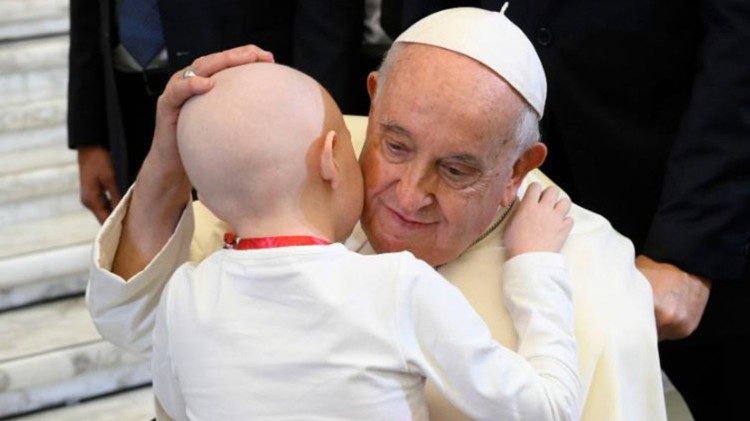Pope thanks God for Benedict XVI, ‘faithful servant of the Gospel and the Church’
The Holy Father's words before the Angelus

At the end of the Holy Mass celebrated in the Vatican Basilica for the Solemnity of Mary Most Holy Mother of God and on the occasion of the 56th World Day of Peace, Pope Francis looked out the window of his study in the Vatican Apostolic Palace to recite
the Angelus with the faithful and pilgrims gathered in St. Peter’s Square for the customary Sunday appointment.
These were the words of the Holy Father as he introduced the Marian prayer:
Before the Angelus
Dear brothers and sisters, good day and Happy New Year!
The beginning of the new year is entrusted to Mary Most Holy whom we celebrate today as Mother of God. At this time, let us invoke her intercession especially for Pope emeritus Benedict XVI who left this world yesterday morning. Let us all join together, with one heart and one soul, in thanking God for the gift of this faithful servant of the Gospel and of the Church. We saw recently on TV, the “Sua Immagine” program, all that he did and the life of Pope Benedict.
As we contemplate Mary in the stable where Jesus was born, we can ask ourselves: What languages does the Holy Virgin use to speak to us? How does Mary speak? What can we learn from her for this year that is dawning? We can say, “Our Lady, teach us what we need to do this year”.
In reality, if we observe the scene that today’s Liturgy presents to us, we note that Mary does not speak. She welcomes the mystery she is experiencing with awe, she cherishes everything in her heart and, above all, she is concerned about the Child whom, as the Gospel says, was “laid in a manger” (cf. Lk 2:16). This verb “to lay” means to carefully place, and this tells us that the language proper to Mary is maternal: she tenderly takes care of the Child. This is Mary’s greatness. As the angels celebrate, the shepherds come running and everyone praises God with a loud voice for what has happened, Mary does not speak, she does not entertain her guests explaining everything that had happened to her, she does not steal the show – to us who like to steal the show! – she does not steal the show. On the contrary, she puts the Child in the centre, she lovingly takes care of him. A poet once wrote that Mary “even knew how to be solemnly mute, […] because she did not want to lose sight of her God” (A. Merini, Corpo d’amore. Un incontro con Gesù, Milano 2001, 114).
This is typically maternal language: the tenderness of taking care of. In fact, after having borne the gift of a mysterious prodigy in their wombs for nine months, mothers constantly put their babies at the centre of their attention: they feed them, they hold them in their arms, they tenderly lay them down in the crib. To take care of – this is the language of the Mother of God, a language of mothers: to take care of.
Brothers and sisters, like all mothers, Mary bore life in her womb and thus, she talks to us about our future. But at the same time, she reminds us that, if we truly want the New Year to be good, if we want to reconstruct hope, we need to abandon the language, those actions and those choices inspired by egoism and learn the language of love, which is to take care of. To take care of is a new language that counters these languages of egoism. This is the commitment: to take care of our lives – each one of us needs to take care of our own life – to take care of our time, of our souls; to take care of creation and the environment we live in; and even more, to take care of our neighbour, of those whom the Lord has placed alongside us, as well as our brothers and sisters who are in need and who call for our attention and our compassion. Looking at Our Lady with the Child, there taking care of her Child, let us learn to take care of others, even of ourselves, caring for our interior health, our spiritual life, charity.
Celebrating today the World Day of Peace, let us regain awareness of the responsibility that has been entrusted to us to construct the future – in the face of the personal and social crises we are living, in the face of the tragedy of the war, “we are called to confront the challenges of our world in a spirit of responsibility and compassion” (Message for the 56th World Day of Peace, 5). And we can do this if we take care of each other and if, all of us together, take care of our common home.
Let us implore Mary Most Holy, the Mother of God, so that in this epoch, polluted by diffidence and indifference, she might make us capable of being compassionate and providing care – capable of being compassionate and providing care – capable of “looking more closely and sympathetically at others whenever necessary” (Apos. Exhortation Evangelii Gaudium, 169).
Related

Funeral of Pope Francisco on April 26th in the Plaza de San Pedro
Exaudi Staff
23 April, 2025
3 min

“You give us hope and remind us that God does not forget us” importa
Exaudi Staff
22 April, 2025
5 min

The Best Quotes from Pope Francis During His Pontificate
Exaudi Staff
22 April, 2025
3 min

Pope Francis dies of stroke and irreversible cardiovascular collapse
Exaudi Staff
22 April, 2025
1 min
 (EN)
(EN)
 (ES)
(ES)
 (IT)
(IT)

